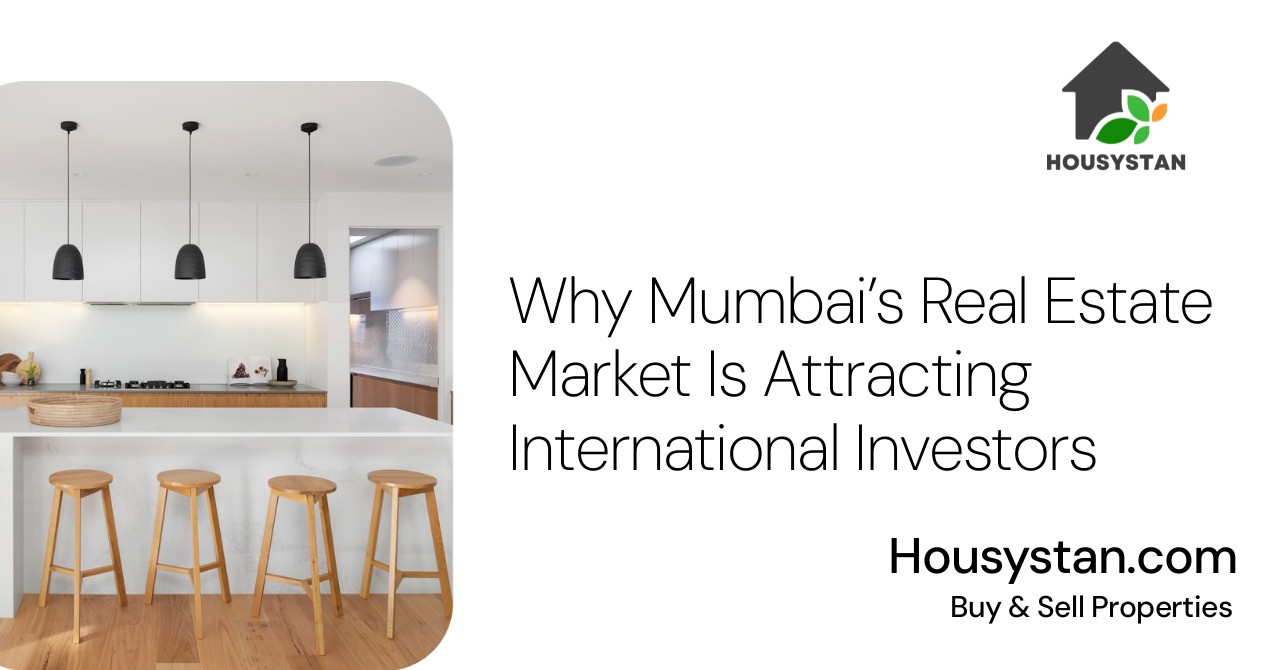Why Mumbai’s Real Estate Market Is Attracting International Investors
Read latest blogs and articles from Housystan

The Information mentioned here was last updated on:
29/1/2026Mumbai, often referred to as the financial capital of India, has rapidly emerged as a magnet for international property investors. This bustling metropolis boasts a unique blend of modern infrastructure, robust economic growth, and a vibrant lifestyle, making it a prime destination for global real estate enthusiasts. Over the past decade, the city’s property sector has witnessed significant transformation, driven by large-scale commercial developments, world-class amenities, and enhanced connectivity. These advancements are paving the way for Mumbai’s real estate market to gain widespread attention from investors across the globe.
One of the major factors attracting foreign investment to Mumbai is its strategic geographic location. Positioned along the Arabian Sea, the city offers seamless access to major ports and international trade routes. This advantage not only fuels business growth but also enhances the appeal of commercial and residential spaces. Additionally, Mumbai’s well-developed transport network, including metro lines, expressways, and an international airport, ensures efficient connectivity within the city and beyond, further increasing its desirability among global buyers.
The city’s dynamic job market and thriving industries, especially in finance, technology, and entertainment, continue to draw expatriates and professionals from various countries. As a result, the demand for luxury apartments, high-end office spaces, and mixed-use developments is on the rise. International investors recognize Mumbai as an opportunity to earn lucrative returns, given the city’s steady appreciation in property values and high rental yields. Emerging neighborhoods like Bandra, Lower Parel, and Powai are particularly sought after, offering upscale living environments and premium amenities.
- Verified Tenants/Buyers
- Unlimited Property Listing
- Zero subscription/charges fee
Moreover, regulatory reforms such as the introduction of RERA (Real Estate Regulatory Authority) and the ease of doing business have strengthened transparency and investor confidence. These measures protect buyers’ interests and streamline property transactions, making Mumbai an even safer bet for overseas capital. With India’s growing economy and Mumbai’s pivotal role in driving growth, the city stands out as a premier real estate investment hub in Asia. For international investors seeking a blend of stability, growth, and cosmopolitan living, Mumbai remains a top choice for real estate investment in 2024 and beyond.